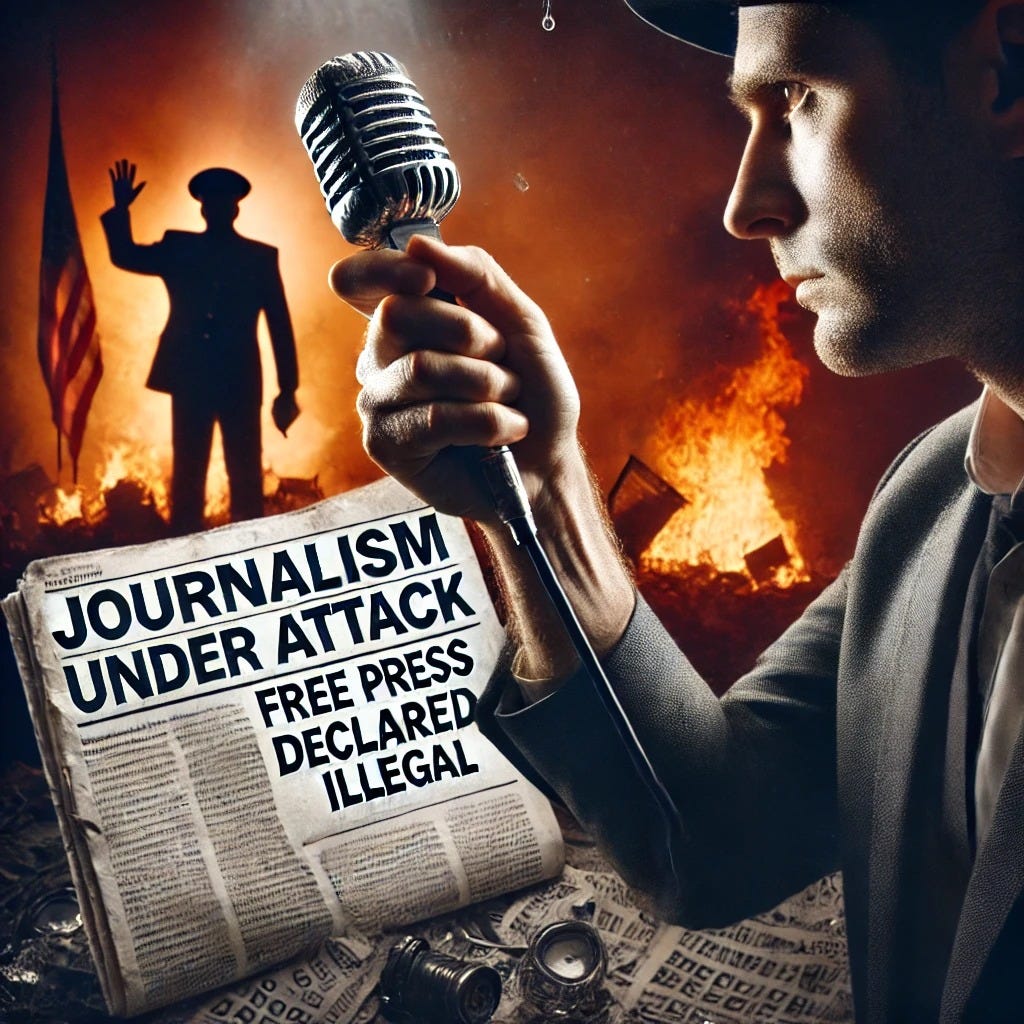✍️ Why Journalism Matters—And Why We Must Defend It
Journalism isn’t just about headlines. It’s also about democracy.
When politicians like Donald Trump attack the news media, they aren’t just going after journalists. They also go after our right to know what our government is doing. And when we lose that, we lose the power to hold leaders accountable.
📣 Trump’s Latest Attack on the News Media
On June 7, 2025, Trump escalated his attacks on the press by dismissing even Fox News coverage of nationwide “No ICE” protests. Speaking at the Kennedy Center, he told a Fox reporter, “Do I believe you? I don’t think so,” and labeled the protestors “insurrectionists.”
He also defended limiting media access, citing a recent Supreme Court ruling that allows barring the Associated Press from presidential events, despite its clear First Amendment implications.
This came just months after a March 14 appearance at the Justice Department, where Trump falsely claimed that CNN and MSNBC are “illegal” and “political arms of the Democrat Party.” He also accused them of reporting “97.6% bad” about him—another baseless statistic.
Taken together, these attacks reflect more than personal grievance. They are direct assaults on a free press—one of the cornerstones of American democracy.
Trump is not alone in his attacks. Politicians, business leaders, and other prominent people also try to discredit the news media when coverage doesn’t go their way.
But the First Amendment doesn’t exist to protect the powerful. It exists to protect the people—to make sure we have independent news sources keeping us informed and the government in check.
Local, Regional, and National Journalism All Matter
It’s easy to focus on big TV networks when politicians are in the spotlight, but threats to journalism are happening at every level.
Local newspapers, regional outlets, and national investigative teams all play a role in exposing corruption, revealing hidden policies, and ensuring government transparency.
Without strong local newsrooms, communities lose transparency, voter turnout drops, and civic engagement declines. That makes it easier for politicians to operate behind closed doors, without public scrutiny.
The Growing Threats to Journalism
The news media face two major threats: shrinking resources and political attacks.
Shrinking ad revenue—driven partly by “free” news on the internet—has forced many newsrooms to cut staff and coverage, especially at the local level. At the same time, corporate media chains have shifted money away from local markets, reducing coverage of the communities that rely on them most.
Meanwhile, public distrust—fueled by leaders calling real journalism "fake news"—has made the job even harder. When people in power claim independent reporting is "corrupt," they create an environment where facts are dismissed, and the government goes unchecked.
🛠️ What You Can Do — and Why I Am
With a career in journalism and government communications, I know firsthand how essential a free press is to democracy. Defending journalism isn’t just about subscribing to a newspaper or sharing credible articles online—though that helps.
It’s also about speaking up for independent and nonprofit news media, helping others understand their value, and challenging inaccuracies, misleading narratives, and outright lies—wherever they come from.
When the highest office in the country attacks journalism, it’s not just about one politician. It’s about the future of truth, accountability, and democracy itself. A free news media isn’t perfect, but it’s essential. Without it, democracy doesn’t work.
Now is the time to stand up for journalism—before it’s too late.
Resources for Speaking Out
Freedoms of Speech, Press & Assembly
A ranked guide to advocacy organizations safeguarding free expression and civic participation.
Local Journalism & Independent News Media
A ranked guide to advocacy groups protecting journalism, rebuilding trust, and sustaining community news.
Contact Information: Washington's U.S. Senators and Representatives


